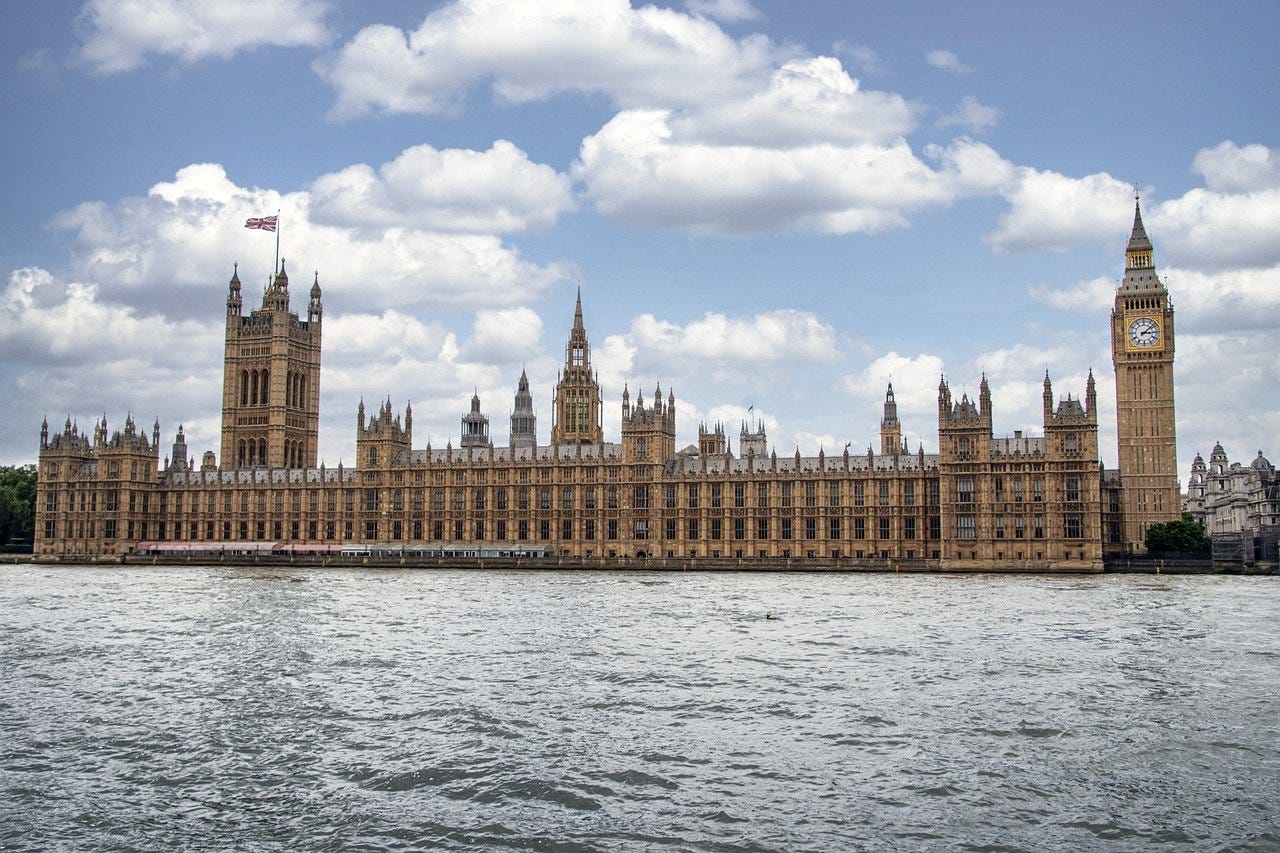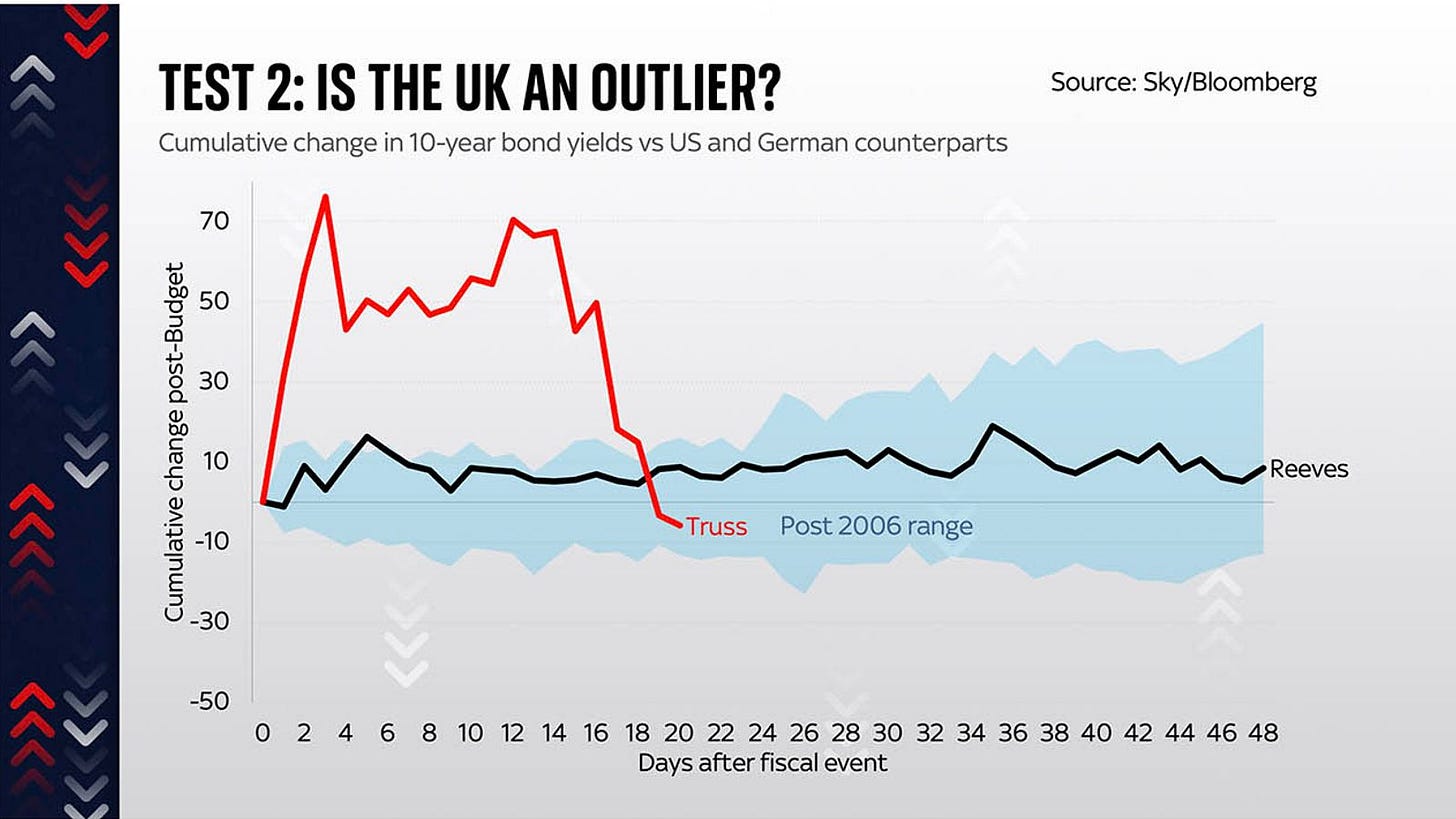Rising UK Yields Threaten Reeves’s Budget Plan
British pound has traded at multi-month lows against the US dollar

The British pound has traded at multi-month lows against the US dollar (GBP/USD) in a rare divergence where rising UK yields weighed on the currency as investors demand higher returns to hold UK bonds.
Fiscal uncertainty surrounding UK Finance Minister Rachel Reeves’s budget plan resulted in a lack of investor confidence due to concerns over the country’s ability to finance its debt sustainably. In October, Reeves introduced a £9.9 billion public spending budget plan.
Fears spread to the UK’s bond auction last Wednesday, leading to lackluster demand for the 30-year bonds. This development pushed the 30-year yield to its highest levels since 1998 at 5.38%. The shorter-term 10-year yield rose to its highest level since the financial crisis at 4.82% as investors sold UK bonds, pressuring government finances.
Even though the rise in government yields is a global issue, “The UK is at highs of this cycle whereas, in Europe and the US, this isn't the case,” said Megum Muhic, a strategist at RBC Capital Markets.
"Higher debt and lower growth are understandably now causing real concerns among the public, among businesses and in the markets," Shadow Chancellor Mel Stride said. Stride commented in response to a question in the House of Commons surrounding rising UK yields.
The UK economy stagnated between July and September and even fell into a technical recession in October while inflation increased at its fastest pace in eight months.
Reeves Faces Major Test Amid Rising UK Yields
Markets and investors have scrutinized Rachel Reeves's economic policies due to rising UK yields. The country remains vulnerable to fiscal overspending as borrowing costs soar.
Analysts at Deutsche Bank have estimated that “a sustained rise in gilt yields would add £10 billion annually to the UK’s debt servicing costs.” This may force Reeves to consider “spending cuts, more borrowing, and likely a little more taxation to close the emerging fiscal hole," Deutsche said.
Reeves’s estimated £9.9 billion fiscal headroom was supposed to have met a self-imposed rule of balancing day-to-day spending with tax revenues by the decade's end.
The budget included a £300 billion issuance of UK bonds over the coming fiscal year to fund infrastructure projects and public services.
A sustained one percentage point rise in gilt yields would add £12 billion annually to borrowing costs by 2029/30, effectively wiping out Reeves’s fiscal cushion, according to the Office for Budget Responsibility (OBR).
Capital Economics said the current margin might have come down to as low as £1 billion.
Reeves insisted over the last weekend following a visit to China that her fiscal rules are “non-negotiable.”
“The market appears to be questioning the credibility of the fiscal plans,” analysts at Citi noted, especially with UK inflation remaining the highest among G7 countries at 2.6% in November.
BOE Maintains Stance Despite Rising UK Yields
Deputy Governor Sarah Breeden at the Bank of England (BOE) stated that while the UK gilt market has remained “orderly,” policymakers are closely monitoring developments.
Despite rising UK yields and a falling pound pressuring the BOE to cut rates, the bank has signaled only two 25-basis-point rate cuts in 2025. High inflation and ongoing wage growth have restricted the BOE’s ability to reduce rates further.

In contrast, recent data in the US have reinforced market expectations that the Fed will maintain higher rates for longer. Rate cuts are now priced at just 30 basis points for 2025, down from 41 basis points earlier.
“We have a very strong dollar, and the dollar is rising against many, many currencies,” Jim O’Neill, a member of the UK House of Lords and former chairman of Goldman Sachs Asset Management, said in a Bloomberg TV interview.
Meanwhile, international investors are demanding higher premiums to hold UK debt. This reflects the dim view of the UK’s growth prospects compared to other major economies.
The UK’s borrowing costs are now over 2.5 percentage points higher than Germany’s, a divergence only exceeded during the former Prime Minister Liz Truss crisis.

Reeves Budget Not a Repeat of Mini-Budget
The current market turmoil has drawn comparisons to the mini-budget crisis of September 2022 under Truss when she announced “unfunded” tax cuts of £45 billion and no clear plan to manage its fiscal impact.
"The major driver of yields going higher…was a combination of the mini-Budget...and the energy crisis,” Simon French, chief economist at Panmure Gordon, said.
While bond yields are now higher than their peak during the Truss crisis, the current sell-off is partially due to a stronger dollar. Back then, erratic policymaking triggered a sharp sell-off in both gilts and the pound, forcing the BOE to intervene.
"This time, there is global anxiety about the level of debt pushing yields up everywhere," French added. "But there's also a dim view on the growth impact from her [Reeves’s] Budget, which is slowing rather than accelerating the economy."







